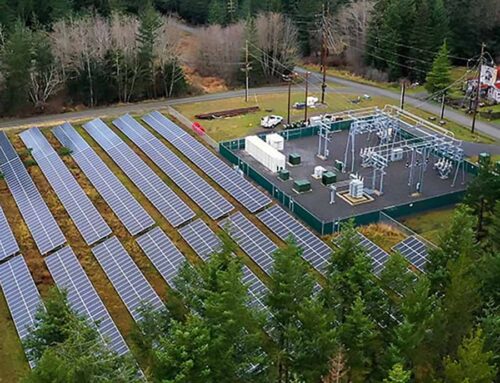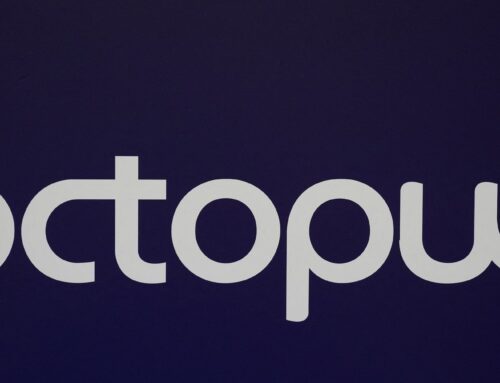Amazon’s AGI Lab Reveals Its First Work: Advanced AI Agents
March 31, 2025
Amazon is still seen as a bit of a laggard in the race to develop advanced artificial intelligence, but it has quietly created a lab that is now setting records when it comes to AI performance. Amazon’s AGI SF Lab, which is located in San Francisco and dedicated to building artificial general intelligence, or AI that surpasses the capabilities of humans, revealed the first fruits of its work today: A new AI model capable of powering some of the most advanced AI agents available anywhere.
The new model, called Amazon Nova Act, outperforms ones from OpenAI and Anthropic on several benchmarks designed to gauge the intelligence and aptitude of AI agents, Amazon says. On the benchmarks GroundUI Web and ScreenSpot, Amazon Nova Act performs better than Claude 3.7 Sonnet and OpenAI Computer Use Agent. A major part of Amazon’s plan to compete in the AI market is to focus on building agents, and the new model’s abilities reflect its efforts to build a generation of tools that can measure up to the very best available.
“I believe that the basic atomic unit of computing in the future is going to be a call to a giant [AI] agent,” says David Luan, who leads Amazon’s AGI SF Lab. He was previously a vice president of engineering at OpenAI and later cofounded Adept, a startup that pioneered work on AI agents, before joining Amazon in 2024 when the ecommerce giant took a stake in the company.
Most of the leading AI labs are now focused on building increasingly capable AI agents. Getting AI to master independent actions, as well as conversation, promises to make the technology more useful and valuable. The shift from chat to action is still very much a work in progress, however.
In the past six months, OpenAI, Anthropic, Google, and others have demonstrated web-browsing agents that take actions in response to a prompt. But for the most part, these agents are still unreliable, and they can easily be tripped up by open-ended requests.
Luan says that Amazon’s goal is building AI agents that are dependable rather than flashy. The thing holding agents back is not the need for “more cool demos of interesting capabilities that work 60 percent of the time, it’s the Waymo problem,” he says, referring to how self-driving cars needed to be trained to deal with unusual edge cases before they could take to the streets unsupervised.
Many so-called agents are built by combining large language models with multiple human-written rules that are designed to prevent them from veering off course, but also makes their behavior brittle. Amazon Nova Act is a version of the company’s most powerful homegrown model Amazon Nova that has received additional training to help it make decisions about what actions to take and at what time. In general, Luan says, AI models struggle to decide when they should intervene in a task.
To improve Nova’s agential abilities, Amazon is using reinforcement learning, a method that has helped other AI models better simulate reasoning.
Amazon is also taking inspiration from physical robots with its new models. Laun’s team is working with another group at Amazon based in San Francisco led by Pieter Abbeel, a professor at University of California, Berkeley who works on finding AI applications for robotics. Abbeel, a fellow early OpenAI employee, joined Amazon in August 2024 after it invested in his startup, Covariant. Amazon is well positioned to make progress in robotics given the vast numbers of those already deployed in its fulfillment centers.
The release of Amazon Nova Act suggests that Amazon could emerge as a dark horse in the race to create useful software agents. The company was slow in responding to ChatGPT, but it has more recently shown signs of getting its act together. In February, the company announced a new version of its voice assistant Alexa with improved conversational abilities as well as the capacity to automate certain web tasks.
One use case Amazon cited is Alexa helping to book a repair service for a broken oven. Luan says Alexa’s new agentic capabilities were developed by his team.
As WIRED revealed last October, Amazon has also done research on how agents might eventually improve ecommerce by automating the process of finding and buying things. Such an agent might preemptively add items to a user’s cart based on their interests and habits, Amazon’s engineers said.
Besides unveiling the new model, Amazon today announced a software development kit (SDK) designed to make it easier for computer engineers to use Amazon Nova Act to build software agents. The SDK lets developers give their agent specific instructions to help them navigate an internet built for human users. For example, an agent can be instructed “don’t accept the insurance upsell” when booking a rental car.
Ultimately, Luan says, Amazon’s agents should become smart enough not to fall for the upsell on their own. “Nova Act is really like the very first step in that vision,” he says.
Search
RECENT PRESS RELEASES
Related Post


